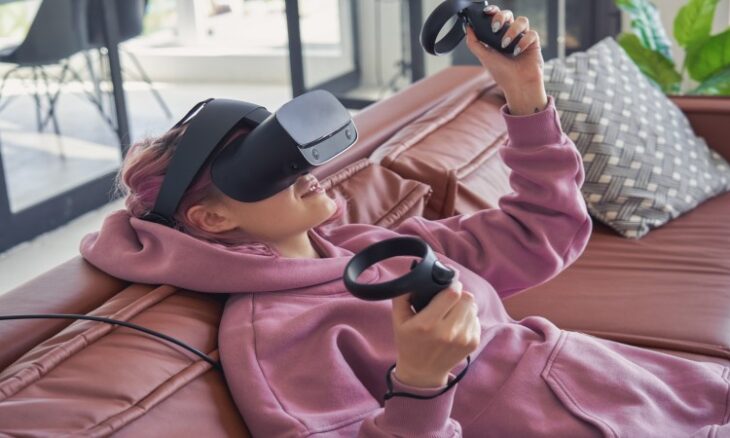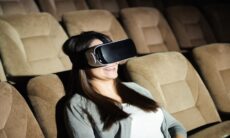UK invests £3.6m in XR mental health projects
Innovate UK, operating under the Department for Science, Innovation and Technology (DSIT), has announced £3.6 million in funding for 17 businesses developing extended reality (XR) tools aimed at improving mental health support. The funding, part of the Mindset XR for Digital Mental Health programme, will be delivered over 18 months and is intended to help companies advance low-cost innovations that could see widespread application.
Among the projects highlighted by DSIT is the development of smart glasses created by CrossSense, designed for people living with severe depression. The glasses are programmed to provide step-by-step guidance for everyday tasks while simultaneously reframing negative thought patterns. For example, users are reminded of safety precautions such as avoiding boiling water when cooking. The technology is also adaptive, learning from the wearer over time to offer personalised support that may aid in reducing the risk of cognitive decline, including conditions like dementia.
Play Well is developing another initiative for Life in collaboration with the University of the West of England. This project is developing an augmented reality board game designed to help children transition back into learning environments. The game introduces participants to four different interactive worlds, encouraging them to solve problems and practise communication skills. The objective is to strengthen social development while helping young people learn to manage emotions in an engaging format.
In Northern Ireland, the Life Process Program is working on a virtual coaching system tailored for individuals coping with substance abuse. The system creates an immersive and interactive therapy environment, replicating real-life sessions and offering users tools to address addiction in a personalised and practical way. By simulating real-world scenarios, the programme aims to support recovery while providing structured therapeutic interventions.
EcoGPX, based in West Yorkshire, is focusing its project on connecting people with the natural world through XR-linked physical activities. This approach has been designed to provide adults dealing with generalised anxiety with an avenue to combine exercise with digital engagement. By merging extended reality with movement, the project aims to promote relaxation, resilience, and overall mental well-being.
In addition, Photography-Based Therapeutics, in collaboration with the University of Surrey, is developing an application that combines artificial intelligence with augmented reality to provide a creative outlet for young people.
The app enables users to edit photographs using tools similar to those found on popular social media platforms. However, the emphasis is therapeutic, allowing the individuals to remove distressing elements and replace them with calming imagery or reassuring text overlays. The personalised visuals produced can serve as digital backgrounds in remote therapy sessions or be assembled into visual diaries, offering therapists deeper insight into how patients respond to stressful environments such as hospital settings.
DSIT has framed the programme as a significant step towards embedding Innovation in healthcare, pointing to the transformative potential of XR technologies to reshape mental health treatment. The agency emphasised that projects of this kind can address gaps in existing services and bring new resources to communities that have often been underserved.
The government has also linked this initiative to its broader health strategy, which prioritises patient-centered solutions while aiming to reduce the strain on the NHS significantly. By leveraging digital tools such as adaptive smart glasses, virtual coaches, and AI-enhanced therapy apps, the projects are expected to deliver accessible support while improving clinical outcomes. Officials have presented these developments as examples of how emerging technology can enhance the resilience, effectiveness, and inclusivity of healthcare.
The programme’s funding allocation is intended not only to back early Innovation but also to scale projects so they can be integrated into mainstream mental health services. The expectation is that, with sufficient investment, XR tools will become part of regular therapeutic practice, enabling more flexible treatment pathways that blend digital solutions with traditional methods. By reinforcing both prevention and treatment, the projects aim to provide patients with practical resources while simultaneously lessening the burden on healthcare providers.










